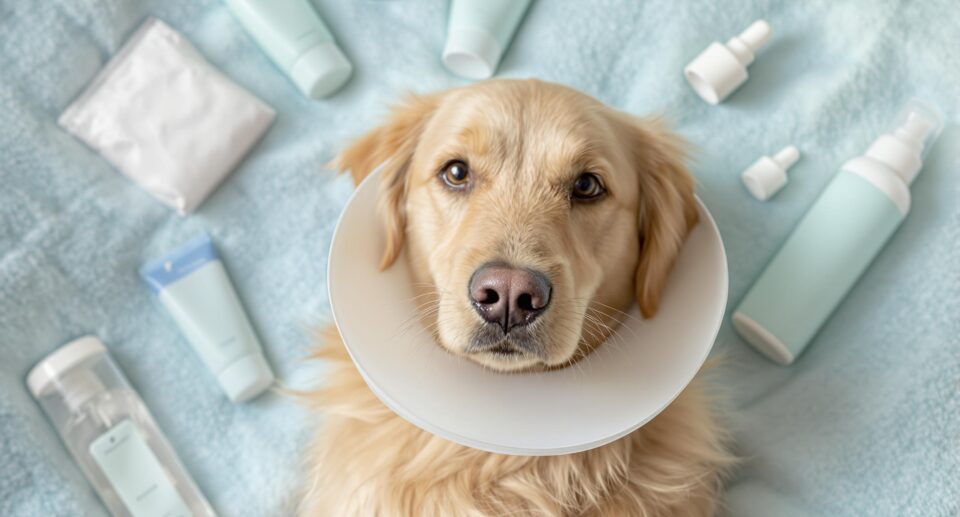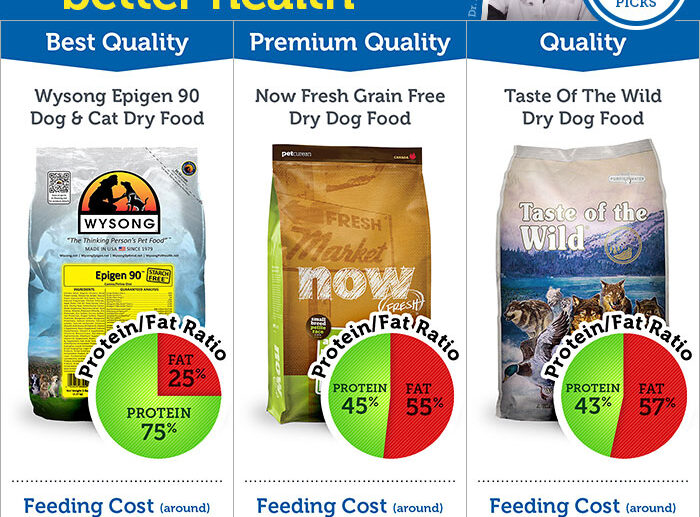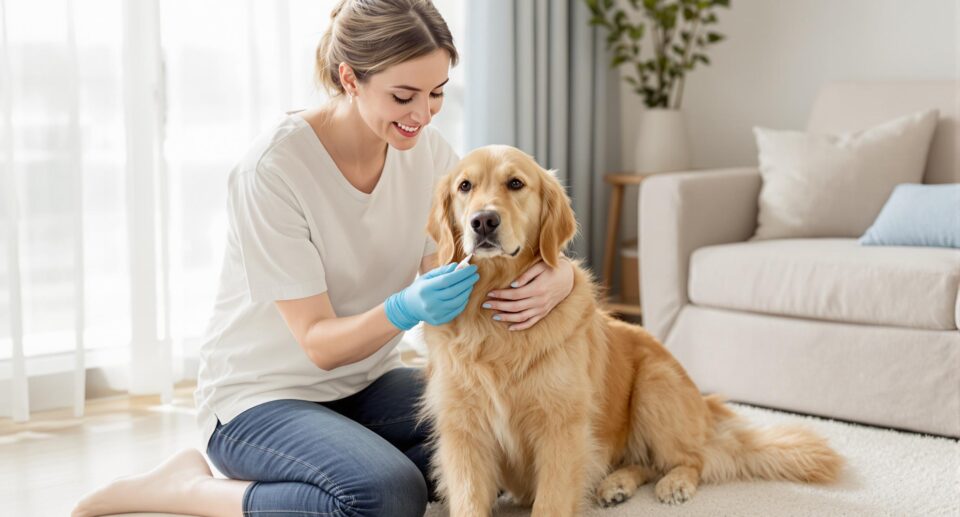Treating Your Dog’s Hot Spots

Relieve your pet’s irritating itch
Hot spots are infected sores caused by bacteria being scratched into the skin. Use a product with ingredients that will help to quickly soothe your pet’s skin and relieve itching.
Use a monthly flea preventative
Hot spots are commonly caused by an allergic reaction to flea saliva. Using a flea preventative can help prevent flea dermatitis by killing fleas.
Allow hot spots to heal
Hot spots can be extremely itchy and as a result can continue to be reopened through chewing and licking when you’re not able to monitor your pet. To ensure a hot spot can properly heal, consider using an Elizabethan collar or recovery cone to deter your pet from reinfecting the wound.





